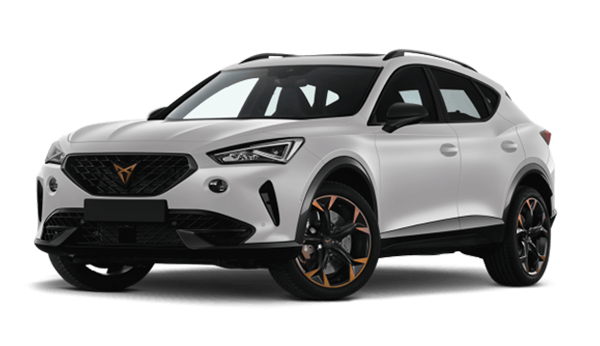Performance
The performance in the Cupra Formentor e-Hybrid is good, but not the hot hatch frenzy you might be hoping for given the performance figures. We tested the higher powered 241bhp VZ2 car, which is hardly tardy given the 7.0sec 0-62mph sprint and yet it never felt very aggressive in the way it accelerates down the road. This is not a car that you fizzes and thrills when you drive it hard in the way that a ‘proper’ hot hatch such as the VW Golf GTI or Ford Focus ST, for instance.
The six-speed dual-clutch auto can feel a touch lazy to respond at times but it generally blurs its shifts well, and the electric motor and petrol engine work together or independently very well. Sure, there’s a noticeable change in throttle response as the power sources shuffle the burden of propelling the Cupra, but it’s subtle and there’s no hesitation or ungainly pause in your progress up the road.
Handling is scrappy in the way the Cupra can struggle to put its power down, but it’s also manageable and predictable. The way the front-wheel drive plug-in hybrid Formentor sticks keenly to a chosen line makes it fun in a reassuringly stable fashion. There’s no four-wheel drive option with the Formentor PHEV, sadly – if you want that extra peace of mind in an attention-grabbing small SUV, the Jeep Renegade 4xe plug-in hybrid could be worth checking out.
Ride comfort is a little busy, but the adaptive dampers that are standard on high-powered ‘VZ’ models keep things smooth on all but the worst road surfaces.
We’ve tried the lower powered, 201bhp hybrid powertrain in other Volkswagen Group products, including the Seat Leon e-Hybrid and Skoda Octavia iV, where it does very well and hardly feels slow. So, if you don’t want the extra kit and moderately more aggressive performance, the lower powered model is likely to be just as satisfying to drive.






















 PV5_Cargo_Key visual image_2.png?width=300&height=185)


